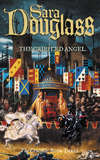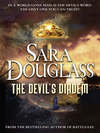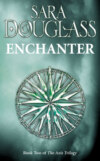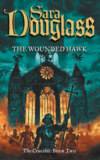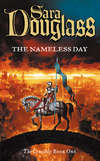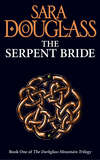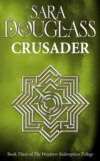Kitabı oku: «The Crippled Angel», sayfa 2
PART ONE
WINDSOR
In the meane time… certain malicious and
cruel persons enuiyng and malignyng in their
heartes… blased abrode and noised dayly
amongest the vulgare people that kyng
Richard… was yet liuyng and desired aide of
the common people to repossesse his realme
and roiall dignitie. And to the furtheraunce of
this fantastical inuencion partely moued with
indignacion, partely incensed with furious
malencolie, set vpon postes and caste aboute
the stretes railyng rimes, malicious meters and
tauntyng verses against king Henry… He
being netteled with these uncurteous ye
unuertuous prickes & thornes, serched out the
authors…
Edward Hall, Chronicle, 1548
I Tuesday 30th April 1381
Lord Thomas Neville walked slowly through the gardens of Windsor Castle, heading for the entrance to the King’s Cloister. He narrowed his eyes slightly against the mid-morning brightness of the sun, enjoying its welcome warmth even though its glare made his eyes ache.
Windsor Castle had long been favoured by the English kings, but since his coronation seven months ago Bolingbroke had made it his main residence. He’d not wanted to reside in Westminster, which he thought cold and uncomfortable; the Savoy was still in ruins; Lambeth Palace was unavailable now that the new Archbishop of Canterbury had moved in; and the only other truly regal palace in London was the Tower, which needed another few months’ worth of renovations before it could be suitable to use as Bolingbroke’s royal residence. So Bolingbroke had moved his court to Windsor, a solid day’s ride west from London.
Neville raised his face slightly, staring towards the silvery stone walls of the castle, looking for the tall, graceful, second level windows of the Great Chamber. Ah… there they were, so afire with the glare of the sun that no outsider would be able to peer through and intrude upon the privacy of the chamber’s occupants. Neville had no doubt that by this time of the day Bolingbroke would be settled with his advisers and secretaries and counsellors.
And here Neville was in the gardens.
“My Lord Neville! Morning’s greetings to you!”
Neville jumped, silently cursing the sudden thudding of his heart. He squinted against the sun, then relaxed, nodding to the man striding down the garden path towards him.
“My Lord Mayor,” he said, extending a hand. “My congratulations on your recent election.”
Dick Whittington took Neville’s hand in a firm grasp, then indicated a nearby bench. “If you’re in no hurry, my lord?”
Neville sat with Whittington on the bench, wondering what the Lord Mayor could want to say to him.
“I am pleased to have this chance to speak with you, my lord, that I might ask after your lovely wife and children.”
“Margaret? Why, she is well, as are Rosalind and Bohun,” Neville responded, surprised at the enquiry. Whittington hardly knew Margaret…
“I have just come from the Great Chamber,” Whittington said, after a slight hesitation, “and an audience with our king—you know of his edicts regarding education, and clocks?”
Neville nodded. Over the past months Hal had instructed that science and the new humanities were to receive a greater weight in schools at the expense of religion, while clock hours were to replace church hours of prayer in people’s daily lives.
It was all, Neville knew, part of Hal’s not-so-subtle turning of his subjects' hearts and minds away from the religious to the secular.
“Aye, well,” Whittington continued, “I needed to consult with his grace over some of the details of the new school curricula, and the appropriate fees the clockmaker’s guild can charge for the installation of clocks in all London’s gates and major steeples.”
Neville shifted impatiently, wondering why Whittington was subjecting him to this pointless conversation.
“My lord,” Whittington said, his eyes narrowing in what might have been amusement, “I am keeping you from your duties, and for that I apologise, but—”
Ah, Neville thought, now we reach the heart of the matter.
“—I admit to some curiosity, even some concern, over the fact that his grace now conducts his morning’s counsel… and you are not there to advise him. I remember those dark days when the peasant rebels set London afire, and murdered the great Lancaster. Then you and his grace were close confidants, brothers almost.”
Then I did not know who, and what, Hal truly was, Neville thought, keeping the expression on his face a mixture of the vaguely pleasant and the vaguely impatient. Demon-King.
“Hal is now king,” Neville said. “He has great lords and Privy Councillors, and even,” he allowed himself a small smile, “Lord Mayors to advise him. He does not need me so much.”
“And the friendship has died along with Hal’s elevation to the throne? I ask,” Whittington hurried on, noting the surprise in Neville’s face, “because I care deeply for Hal, and I cannot think that he is the better man for the loss of your friendship.”
“He has not lost my friendship,” Neville said, noting Whittington’s easy use of Bolingbroke’s Christian name. “We have merely grown distant with circumstances.” He did not say that what Bolingbroke had lost was Neville’s complete trust once he’d realised the depth of Bolingbroke’s lies and manipulations.
“Hal did what he needed to gain the throne,” Whittington said very quietly. “England is the better land for his actions.”
Now Neville stared outright at Whittington. What did he allude to? Bolingbroke’s rebellion against Richard, or the series of well-planned murders that ensured Bolingbroke was the only Plantagenet left to succeed to the throne?
And if Whittington alluded to the murders… then what did that make the Lord Mayor? Man, or demon?
“Who are you?” Whittington said, his voice still quiet. “Hal’s man, or the angels’?”
Neville’s own question answered, he abruptly stood. “I am my own man, my Lord Mayor,” he said, knowing that would be the answer Bolingbroke most feared, and knowing Whittington would certainly report it back to the king. “And now, I will detain you no longer. I am sure London needs its Lord Mayor more than I do.”
And with that he turned and strode away.
As Neville disappeared into the building, Whittington looked to the windows of the Great Chamber, and shook his head slightly.
Bolingbroke looked down from the window of the Great Chamber, catching the shake of Whittington’s head.
His face hardened, his suspicions confirmed.
Behind him droned on the voices of his advisers, debating the merits of raising the passport application fee yet again, but Bolingbroke heard none of it.
Instead, his thoughts were full of Neville.
Why was Archangel Michael so confident of Neville? How could he be so sure of him?
“What is your secret, Tom?” Bolingbroke murmured. “What is your secret?”
Neville blinked as he walked under the stone arch into the shaded walks of the King’s Cloister. There were a few people about enjoying the early spring air, but it was still relatively quiet.
Neville nodded to two young lords whom he knew, then ducked into the stairwell that led to the royal apartments on the second level.
He emerged in the upper gallery, but turned away from the door leading to the Great Chamber and to Bolingbroke. Neither did Neville so much as glance at the open door of the beautiful chapel that ran along the upper gallery at right angles to the Great Chamber.
Instead, Neville walked purposefully towards the Queen’s apartments and the loveliest chamber in the entire castle complex—the Rose Tower.
He paused at the door, nodding to the two guards standing outside, then walked through without any announcement… apart from Bolingbroke, Neville was the only person in the royal court (in the entire kingdom) permitted so to do by the lady within.
Neville paused just inside the door, hearing it close softly behind him, and looked about.
There were several ladies in the chamber, all grouped about the hearth, spinning and gossiping softly.
Margaret was not among them, and Neville supposed his wife was still in their apartment with their two children.
Mary lay on a couch set by the windows so that the morning light could fall upon her, and so that her gaze could in turn fall upon the awakening springtime outside.
Neville smiled, knowing Mary regarded him from under her downcast eyelashes, and walked towards her. As he did so, he once more admired the beauty of this chamber, as he did every time he entered it.
Bolingbroke’s grandfather, Edward III, had redeveloped and redecorated much of Windsor Castle, and the pride of his refurbishing was the Rose Tower chamber, which Edward had made his inner sanctum. The walls and domed ceiling were painted deep crimson, and covered with scattered stars. At regular intervals across this bloodied, starry night were brilliant green enamelled cartouches, each holding within its gilded border a single delicate rose. Now Edward was dead, as was his successor Richard, and Bolingbroke was king, but it was Bolingbroke’s wife Mary who had taken this most beautiful of chambers as her inner sanctum, and that, Neville thought as he knelt on one knee beside her couch, was only as it should be.
“My lady queen,” he murmured, kissing her hand. “How do you this fine morning?”
“The better for your presence, Lord Neville,” Mary replied, and smiled.
Neville’s eyes sparkled with merriment. “My lady queen,” he said, continuing their playful formality, “may I beg your indulgence to rise from my poor knee, and perchance—”
“Sit at the end of my couch,” Mary said, laughing now, “where, Jesu willing, you might cease your groaning.”
Neville did as she bid, careful not to disturb the silken wrap about her, or to place any pressure near the delicate bones of her ankles and feet. For a minute he did not speak, studying her face.
Mary watched him unquestioningly, for this moment of silent regard was a normal part of their morning greeting ritual.
“You have slept well,” Neville said finally.
“Aye. My physician, Culpeper, has formulated a new liquor which allows me to forget my aches and moans for an hour more each night.”
Neville’s merriment faded at Mary’s mention of her illness. Ever since her marriage to Bolingbroke, Mary had been wasting away from a growth in her womb. Sometimes she had a period of wellness that lasted as long as three or four weeks; more often she lay as she did this day, pale-skinned with dark pouches under eyes shadowed with pain.
And yet never did she complain, or moan about the injustice of life.
Silently, Neville reached out a hand and took hers. If his relationship with Bolingbroke had slid from deep friendship into wary politeness, then his relationship with Mary had taken the opposite path. Neville spent several hours each day with Mary—no doubt occasioning much gossip in court—talking, playing chess or, as now, merely sitting with her as he held her hand.
Her condition had stabilised somewhat over the past five or six months. From what both Mary and Margaret had told him, Neville knew that the mass in her womb had stopped actively growing and had instead shrunk to a small, hard lump; Mary no longer exhibited signs of pregnancy, nor expelled blackened spongy portions of the growth. Nevertheless, it continued to suck at Mary’s vitality, and often to cause her great pain and discomfort.
But not to any mortal extent.
Neville wondered what Bolingbroke thought about this.
Bolingbroke and Mary no longer shared the same bed, both claiming that her illness made it impossible for Bolingbroke to sleep well. Bolingbroke had moved to chambers in a distant corner of the royal apartments, where he made no secret of occasionally sharing his nights with an accommodating lady of the court. Mary shrugged away her husband’s unfaithfulness, and from the few words she’d said to him about it, Neville knew that she was secretly glad to escape the burden of her husband’s sexual demands. She was not bitter, nor angry, and spoke of and to her husband with the greatest respect and good humour.
Neville thought her a saint, but he was unsure about how Bolingbroke regarded Mary’s continuing grip on life. As a man (as a man-demon), Bolingbroke loved and lusted for another woman, Catherine of France. As a king, he lusted for the day he could hold a male heir in his arms.
Mary stood in the way of both lusts, and showed no sign of moving into the waiting pit of her grave any time in the near future.
Mary’s hand tightened very slightly around his, and Neville wondered if she somehow not only could read his thoughts, but thought to offer him comfort instead of asking it for herself.
Then the door to the chamber opened, breaking the spell between them.
A guard entered. “The Lady Margaret Neville,” he said, bowing in Mary’s direction, “with her children.”
Mary let Neville’s hand go, then smiled. “Let her enter,” she said, and the guard bowed once again and opened the door wide.
Margaret walked through the door, her seven-month-old son Bohun nestled in her arms. Directly behind Margaret was her maid, Agnes, with Margaret’s two-year-old daughter Rosalind tugging at one of Agnes’ hands as she looked curiously about her.
Both Margaret and Agnes sank into deep curtsies. Then Margaret took Rosalind and walked to where Mary and Neville sat. Agnes retired to a stool in a corner by the hearth to await her mistress’ pleasure.
Margaret glanced at her husband as she approached, then smiled warmly at Mary. “How do you this day, madam?”
“Well, thank you, Margaret. I think that perhaps you and I can walk a little about the gardens this afternoon. It shall be a beautiful day.”
“Gladly, madam.” She started to say more, but then Rosalind broke free from her grip and scampered over to Mary, clambering up on the couch and cuddling in close to the woman. Margaret half reached out to grab her away, then saw the expression on Mary’s face and dropped her hand.
“Do not let her hurt you, madam,” Margaret said.
Mary’s face had lit up as Rosalind snuggled into her body, and now she lifted her eyes to Margaret, and laughed a little. “What? This child? Hurt me? Nay, how can love hurt?”
Again Margaret felt her eyes sliding towards Neville, who she knew was regarding her steadily.
“You are so blessed in your children,” Mary said in a half whisper. One of her hands slowly stroked Rosalind’s shining dark curls. Then she looked at Margaret again. “And in your husband.”
Now Margaret could not help but look at Neville. He smiled slightly, but she could not entirely read the expression in his eyes, and so she looked away again.
When they left the Rose Tower Margaret handed the two children into Agnes’ care and asked Neville if he would walk a while with her in the cloisters.
He linked an arm with hers, and together, slowly, they strolled about the sunlit flower beds, their bodies moving in unison, their hips occasionally bumping through the thick folds of their clothes.
“Mary seems well,” Margaret eventually said.
“Well enough for a dying woman,” Neville responded, his eyes once more on the glittering windows of the Great Chamber.
“Tom… ”
Neville pulled her to a halt, and turned her so that their eyes could meet. “What is troubling you, Margaret?”
She gave a harsh laugh. “How can you ask that? My fate rests in your hands; the fate of my kind, and of humankind, where you decide to gift your soul. Of course I am troubled, for I do not think I know you any more.”
He studied her a moment. “And?”
“And?” Margaret took a deep breath. “And… you once said you loved me, but now I do not know. You spend so much time with Mary—”
“You think that I love Mary? No, do not answer that, for of course I love Mary.”
Margaret’s eyes suddenly filled with tears.
“I do not covet her flesh as a man is wont to covet a woman’s flesh,” Neville continued, “for I am lost in my covetousness of your flesh.” He ran the fingers of one hand gently down her neck, and his eyes down the sweet curves of her body. “And I do not love her in a courtly fashion, for I could not imagine composing verse to any love but you. I love her as goodness personified—I do not think there can be any person living as good as Mary. And I love her because she is trust personified.”
“Trust personified?”
Neville’s hands were on Margaret’s shoulders, firm and resolute. “I trust Mary as I trust no one else,” he said. “For of all people walking on this earth, I think she is one of the few who cannot be anything but what she appears. Mary has no secrets, and no secret plans.”
Margaret lowered her gaze. “You have not yet forgiven me for what I—”
“And Hal,” Neville put in.
“—did to you… with Richard.”
Neville’s expression tightened at the memory of how Hal and Margaret had stage-managed her rape by Richard, then coldly manipulated Neville’s guilt to force him to admit his love of her. “I have forgiven you, Margaret,” he said, and his hands loosened their grip on her shoulders. “And I still swear my love for you, and for our children. But I walk with open eyes now, and, yes, that makes a difference to how I see you… and all yours.”
He does not trust me, Margaret thought, wishing not for the first time that she hadn’t agreed to Hal’s plan. “I am your wife, Tom,” she said, reminding him of the promise she’d made to him the day Bohun had been born. “Not Hal’s sister.”
Neville smiled gently, and touched a thumb to her cheek, wiping away the tear that had spilled there.
“Of course,” he said.
II Friday 3rd May 1381
The great hall at Windsor was not so grand nor so large as the great hall at Westminster, but it was imposing enough and, when it was lit with thousands of candles and torches as it was this night, it shimmered with a delightful fairy light all its own. May had arrived with all its attendant ritual and games and seasonal joy, and Bolingbroke had organised tonight’s feast to mark the commencement of his spring court. Thick sprigs of early spring flowers hung about pillars and beams, the scent of the flowers combining with that of the freshly laid rush floor to delight the senses of the guests. Servants had erected trestle tables in a long rectangle down the centre of the hall, and now they groaned under the weight of their linens, their gold, silver and pewter ware, and the initial dishes of the feast. The entwined harmony of lively chatter and music from the musicians walking up and down the aisles wound its way to the roof beams and then back down again, echoing about the hall.
The feast was proving an auspicious start to the weekend of tourneying that lay ahead.
Neville and Margaret sat with his uncle Ralph Neville’s wife, Joan, and her mother, Katherine, the Dowager Duchess of Lancaster, on the first table to the right of the High Table. Their placement was an indication of the king’s high esteem. As Baron Raby and Earl of Westmorland, Ralph Neville himself sat with the king and queen at the High Table on the dais. Sharing the High Table with Bolingbroke, Mary, and Raby sat the Abbot of Westminster, Henry Percy Earl of Northumberland, and John Holland Duke of Exeter and Earl of Huntingdon.
The Abbot’s presence at High Table was no surprise. Not only was he the senior ranked churchman present, but the Abbot of Westminster was the man who’d crowned Bolingbroke as King Henry of England. To not seat him at High Table would have been a grave insult to both man and Church.
As the Abbot’s presence was no surprise, neither was that of Ralph Neville, the Earl of Westmorland, and Henry Percy, the Earl of Northumberland. The combination of the power and influence of both these northern nobles had been pivotal in allowing Bolingbroke to raise the army needed to wrest the throne from Richard. But while Raby was an old family friend, taking as his second wife Bolingbroke’s half-sister Joan, the Percy family’s loyalty had once been with Richard. Northumberland’s allegiance to Bolingbroke was still relatively new, and thus relatively fragile—and made the more fragile because Northumberland’s son, Hotspur, had yet to swear allegiance to Bolingbroke. Bolingbroke had gone out of his way these past months to keep Northumberland happy, and to heap upon him (as Raby) those preferments both men deserved for their part in bringing Bolingbroke to the throne.
Bolingbroke had not ascended the throne via the smooth transition of father to son. Instead, Bolingbroke had wrested the throne from his cousin, Richard, taking England to the very brink of civil war in so doing. For long months England’s nobles had been divided between those who’d supported Richard’s right to hold the throne, and those who’d supported Bolingbroke’s right to take it from Richard. In the end, Bolingbroke’s faction had prevailed, but the wounds were still open, particularly since the December reports of Richard’s untimely death due to a sudden fever while incarcerated at Pontefract Castle.
Thus the inclusion of John Holland Duke of Exeter and Earl of Huntingdon at High Table. Exeter had not only been one of Richard’s closest supporters, he was also Richard’s older half-brother: Richard and Exeter shared a mother, the beautiful (and sexually adventurous) Joan of Kent, who had been married to Sir Thomas Holland before the Black Prince seized her (she’d also had a bigamous marriage to William Montague, but fortunately there’d been no children from that union). Over the past six months Bolingbroke had worked assiduously to gain the acceptance and eventual support of those nobles who’d originally supported Richard. Bolingbroke had ostracised none of them, and had presented many of them with good preferments, appointments, and, on occasion, an advantageous marriage.
Yet Bolingbroke still sat the throne uneasily. Only rarely could allegiances be changed overnight, and Bolingbroke never truly knew what the smile on a courtier’s face truly meant: allegiance, or hidden treachery.
Tonight, however, any concern about allegiances was well hidden behind smiles and courtly conversations. Mary was looking better than she had for several weeks. Her face was still pallid, but her eyes shone brightly, and her thin hands were steady as she accepted delicacies from the plates of her husband, on her left, and Raby, to her right. Bolingbroke engaged her from time to time in courtly conversation, but most of his attention was given to Northumberland, Exeter and the Abbot, who were all seated to his left.
Those whose allegiance he was most unsure of received his most gracious smiles.
Thomas Neville, watching the interplay from his spot close to the High Table, smiled himself at Bolingbroke’s efforts. Doubtless he thinks to ensure the country behind him before he embarks on his campaign of world conquest, he thought, and his smile faded a little.
It was a pity for Bolingbroke that Richard had died under such shadowy circumstances—and Neville had no doubt that Richard’s death had been an expeditious murder rather than an unfortunate fever—and not nobly in the course of battle. Neville remembered how Bolingbroke had won the support of Richard’s army outside Flint Castle with golden words rather than with bloodshed, and now he wondered if perhaps Bolingbroke hadn’t miscalculated. Perhaps he should not have called a halt to what brief battle there had been before Richard had taken a blade in the throat. Perhaps…
“Your thoughts must be all-consuming,” said a voice to Neville’s right, “for they have surely taken your attention from the feast spread before us. And such a feast!”
“Forgive me,” Neville said, smiling as he turned to face his dining companion, John Montagu Earl of Salisbury (and relative of the William who had bigamously bedded Richard’s mother, Joan). Montagu was another noble who had backed Richard—the damn hall was packed with them!—and doubtless Bolingbroke was hoping that Neville could charm Montagu as the king was doubtless charming Holland. “I was merely wondering what had so caught the abbot’s attention.”
Montagu glanced at the High Table: the Abbot of Westminster, Bolingbroke, and Holland and Northumberland had engaged in a lively conversation that had the Abbot’s cheeks a bright red with excitement.
“Our king’s plans for Westminster, perhaps,” Montagu said.
“Aye. Rumour has it that the abbot is excited at the thought of Parliament finally moving out of Westminster Abbey’s chapter house!”
Montagu laughed easily, although the fingers of his right hand toyed nervously with his knife. “Your Hal has wasted no time making his mark upon the land,” he said.
Neville’s smile did not slip at Montagu’s usage of “your Hal”. “Parliament needed somewhere new to sit,” he said. “The Chapter House was too crowded, and the abbot had spent the past fifteen years complaining of the rowdiness of both Lords and Commons.” He broadened his smile with a little effort. “He claims his meal times to have been quite ruined.”
“But to give Parliament the use of Westminster Palace… ” Montagu said. His knife was now making irritating rattling sounds as it jiggled against the side of his pewter plate.
Neville shrugged. “The palace was cold and draughty, and of little use for the family that Bolingbroke hopes to have surround him.”
“And faint hopes of that,” Montagu said in an undertone, shooting a glance towards Mary.
“It is understandable, perhaps,” Neville continued, “that he should want to refurbish the Tower instead, and make of it not only a palace fit for a king, but a warm home as well.”
“But to give Saint Stephen’s to Commons!” Montagu said, and his hand finally stopped playing with his knife as he fixed his dark eyes on Neville.
Ah, Neville thought, the crux of the matter. Parliament would now sit in Westminster Palace and, for the first time, the Houses of Lords and Commons would be permanently divided. The new home of the House of Commons was to be the supremely beautiful St Stephen’s Chapel, where Lancaster had married his Katherine, but Lords… Lords… Neville’s smile finally lost its forced thinness and blossomed into a mischievous grin.
“Commons is the much larger house,” he said, “and Saint Stephen’s can accommodate them easily.”
Montagu remained silent, now staring at his knife.
Neville fought to stop himself from laughing. “But of course, I can understand that many among the lords might be, ah, disgruntled, that they shall from henceforth sit in… the kitchens.”
It was the merriment of the nation. Although Westminster Palace had several large halls, most were currently entirely unsuitable for permanent habitation by the House of Lords. The Painted Chamber’s floor was almost rotted through, and needed replacing, while its foundations were dank with rising damp. Repairs were desperately needed. White Hall had, for over fifty years, been divided up into sundry chambers for clerks and officials of the Chancery, and it would take a generation not only for all the brick partitions to be pulled down, but for suitable storage space to be found for all the rolls and deeds of government bureaucracy, not to mention all the grumpy Chancery officials. The Great Hall of Westminster was reserved for ceremonial occasions and the daily activities of the King’s Bench, as various other legal courts.
That left the kitchens which were, in actual fact, a good choice. The great hall of the kitchen was of a similar size to the Painted Chamber, was solidly built, well lit, and, by virtue of being a kitchen, was well heated with five great hearths; and now that the palace was no longer to be used as a residence, the huge kitchen complex would no longer be needed. Once the cooks, dairy maids and butchers were moved out and the hall scrubbed, it would actually make a very good home for the House of Lords.
It was just that it was a former kitchen! While many lords accepted it in good humour—their new home would be far more commodious and comfortable than the cramped Chapter House—many grumbled about it, feeling the location a slur. The beautiful St Stephen’s went to Commons, while the lords got the kitchens…
At least the people on the streets of London and, presumably, the fields of England, have something to smile about, Neville thought.
Then, before he could speak again, the Abbot of Westminster rose to his feet, his cheeks now a deep-hued crimson (although whether with excitement or drink, Neville could not tell), and called a toast to their handsome young king, and all in the hall rose, and raised goblets towards Bolingbroke.
Much later, Bolingbroke rose, extending his arm to Mary. She rose herself, but her action was decidedly unsteady, and Bolingbroke’s eyes flew to Margaret at Neville’s side.
Margaret murmured in concern, and moved about the tables towards Mary in order to help her.
Bolingbroke’s eyes locked with Neville’s, and he tilted his head slightly.
Neville nodded, understanding. Making his apologies to both Montagu and to Katherine, Lancaster’s widow, he moved quickly and silently into the pillared aisles behind the tables.
“More wine, Tom? Surely you cannot have yet drunk yourself into stupidity.”
“Thank you, sire,” Neville said, taking the goblet that Bolingbroke extended.
“Hal,” the king said. “Call me Hal, Tom, when we are in private like this.”
Neville had left the hall and walked quickly to Bolingbroke’s private apartments as Bolingbroke said his goodnights to both his guests and to Mary. He’d waited almost half an hour in the antechamber to Bolingbroke’s suite before the king had entered, dismissed all his attendants with an impatient wave of his hand, and nodded Neville through into the inner bedchamber.
Ücretsiz ön izlemeyi tamamladınız.
